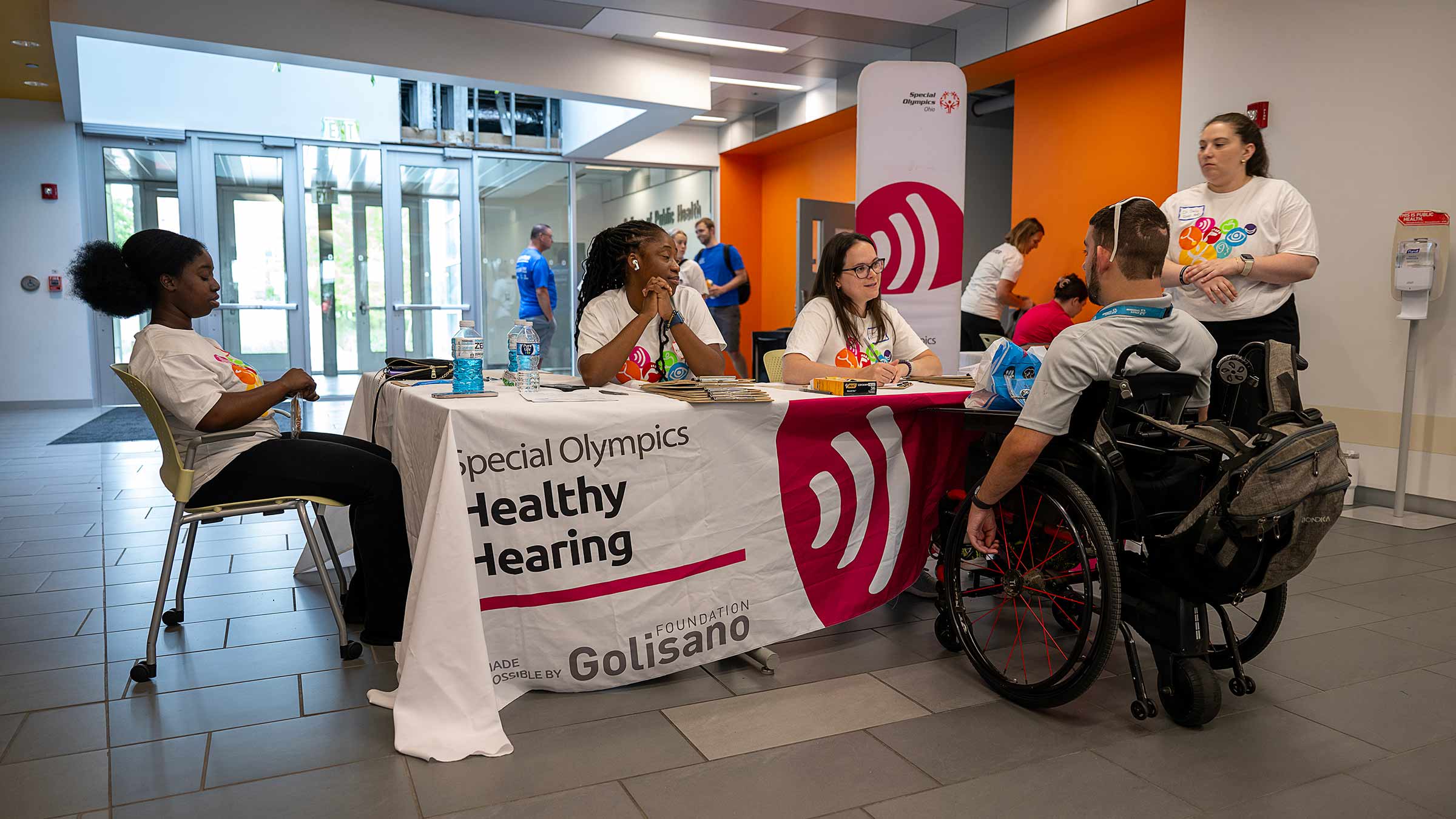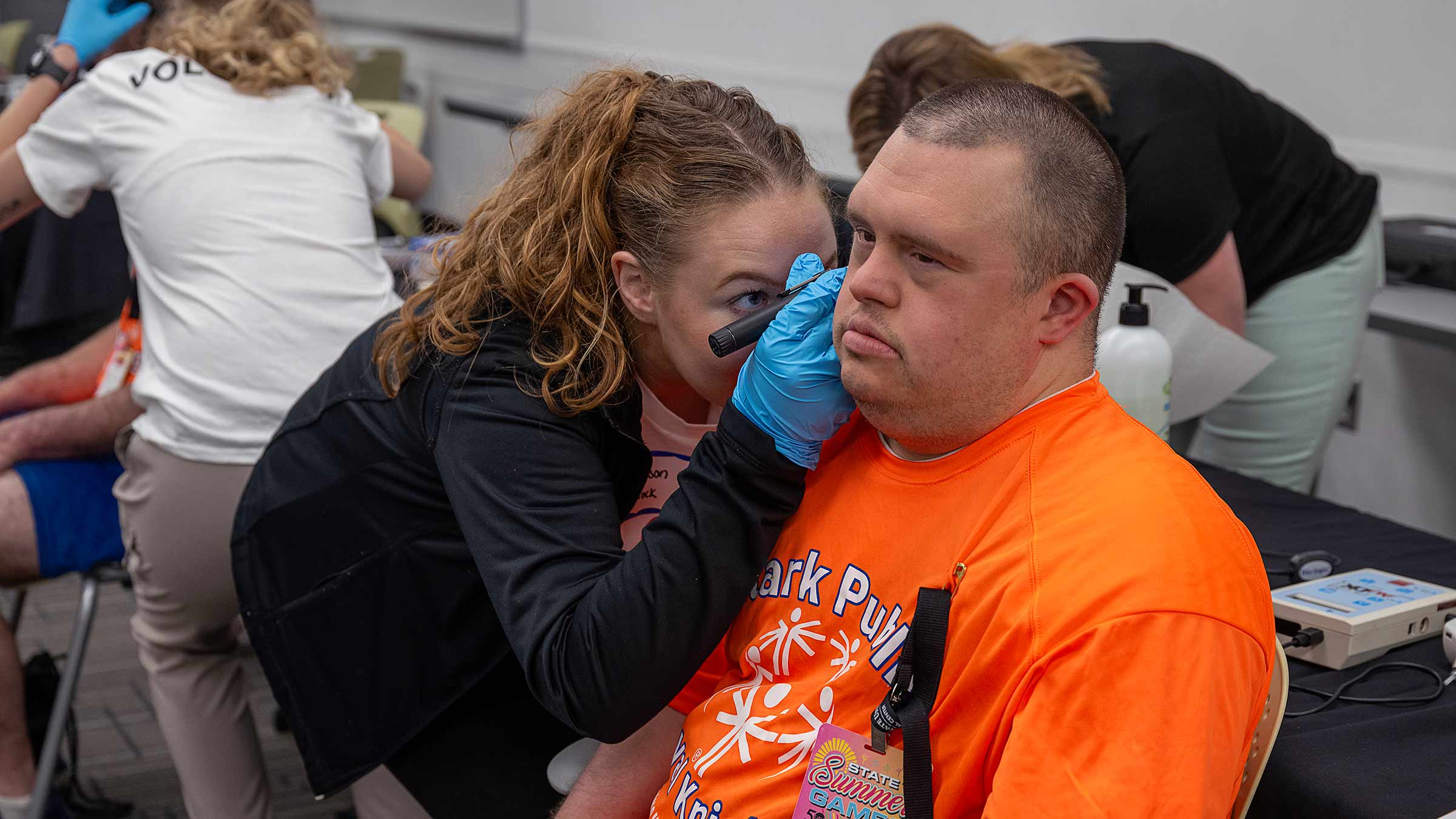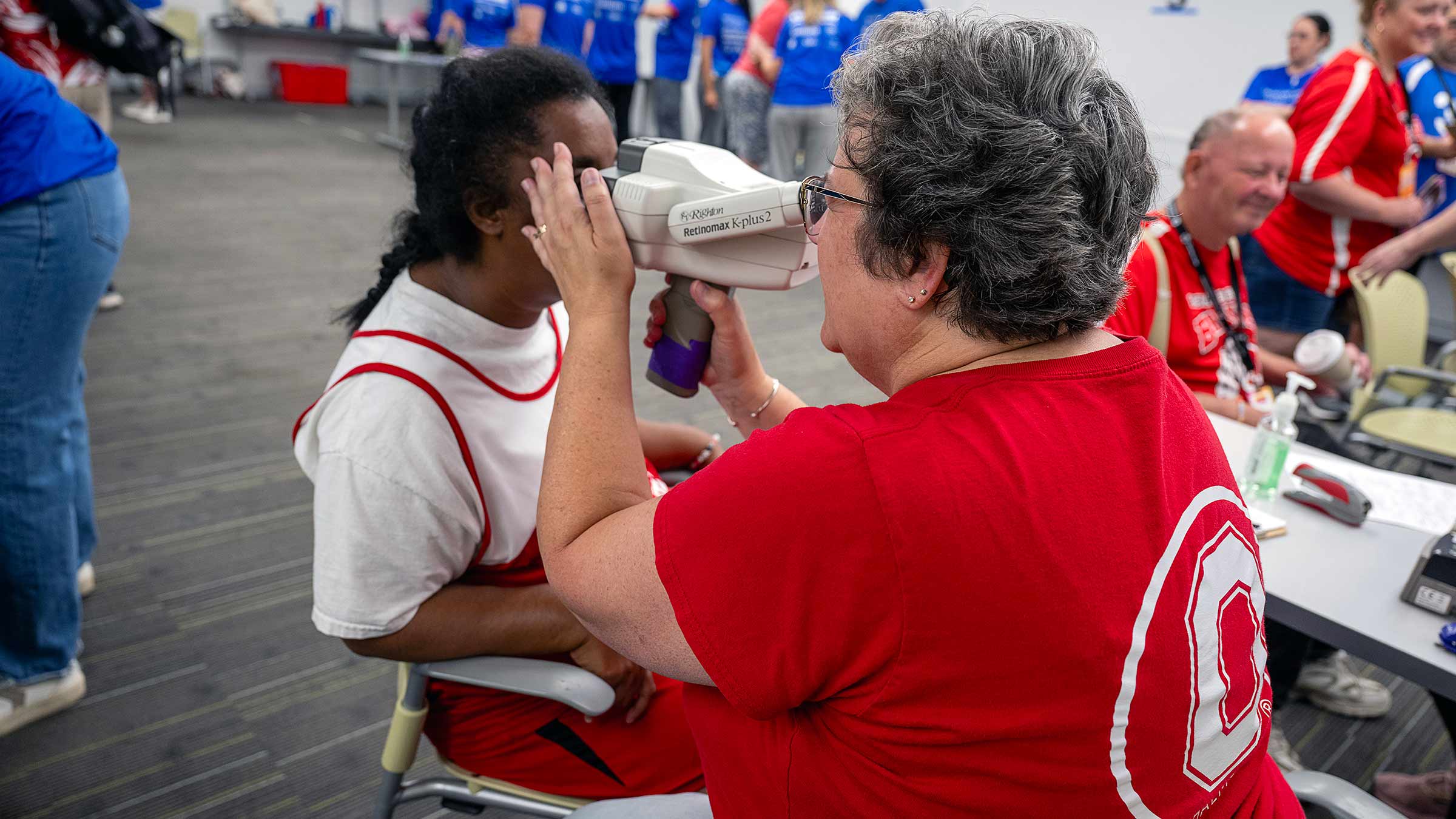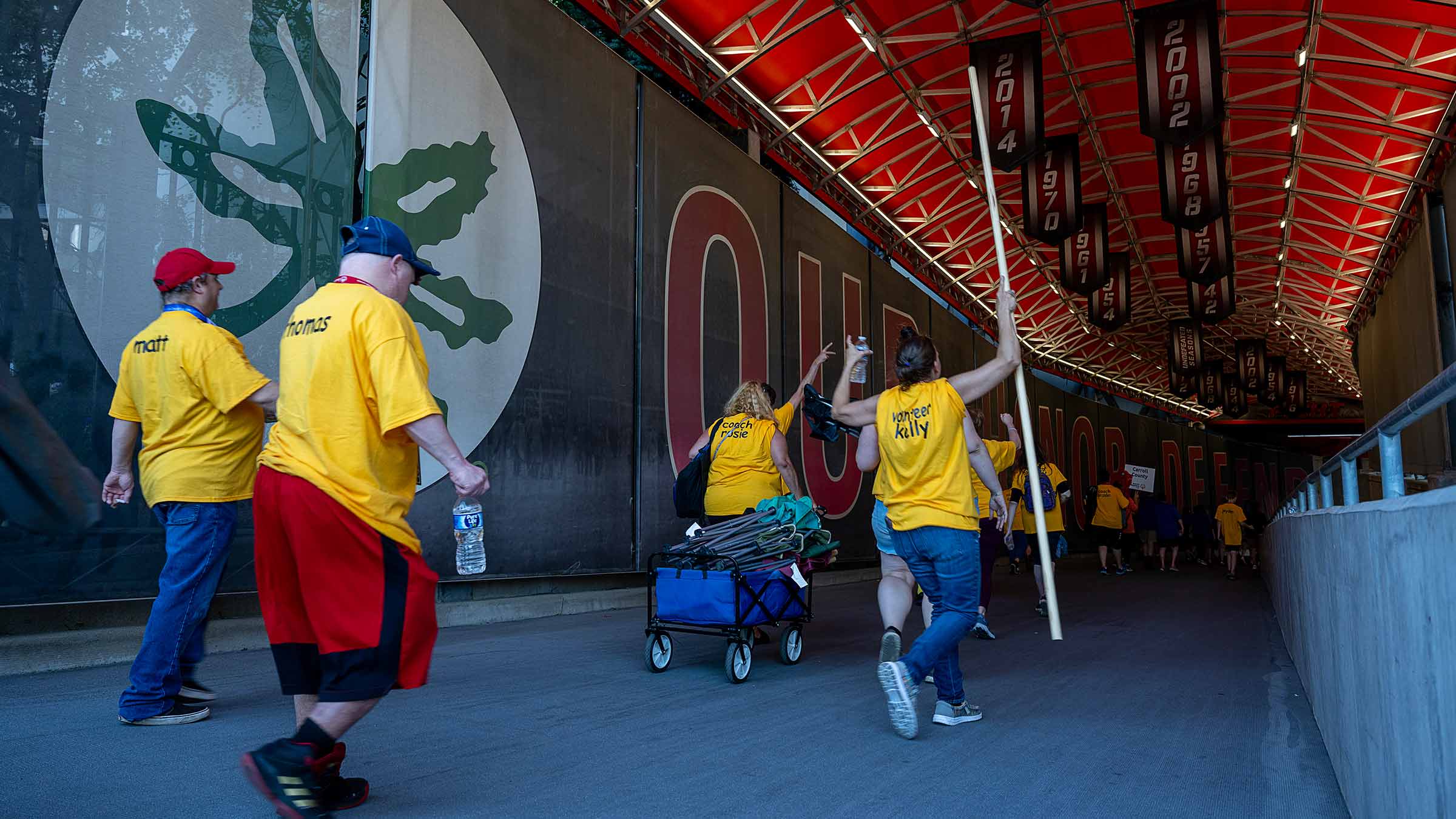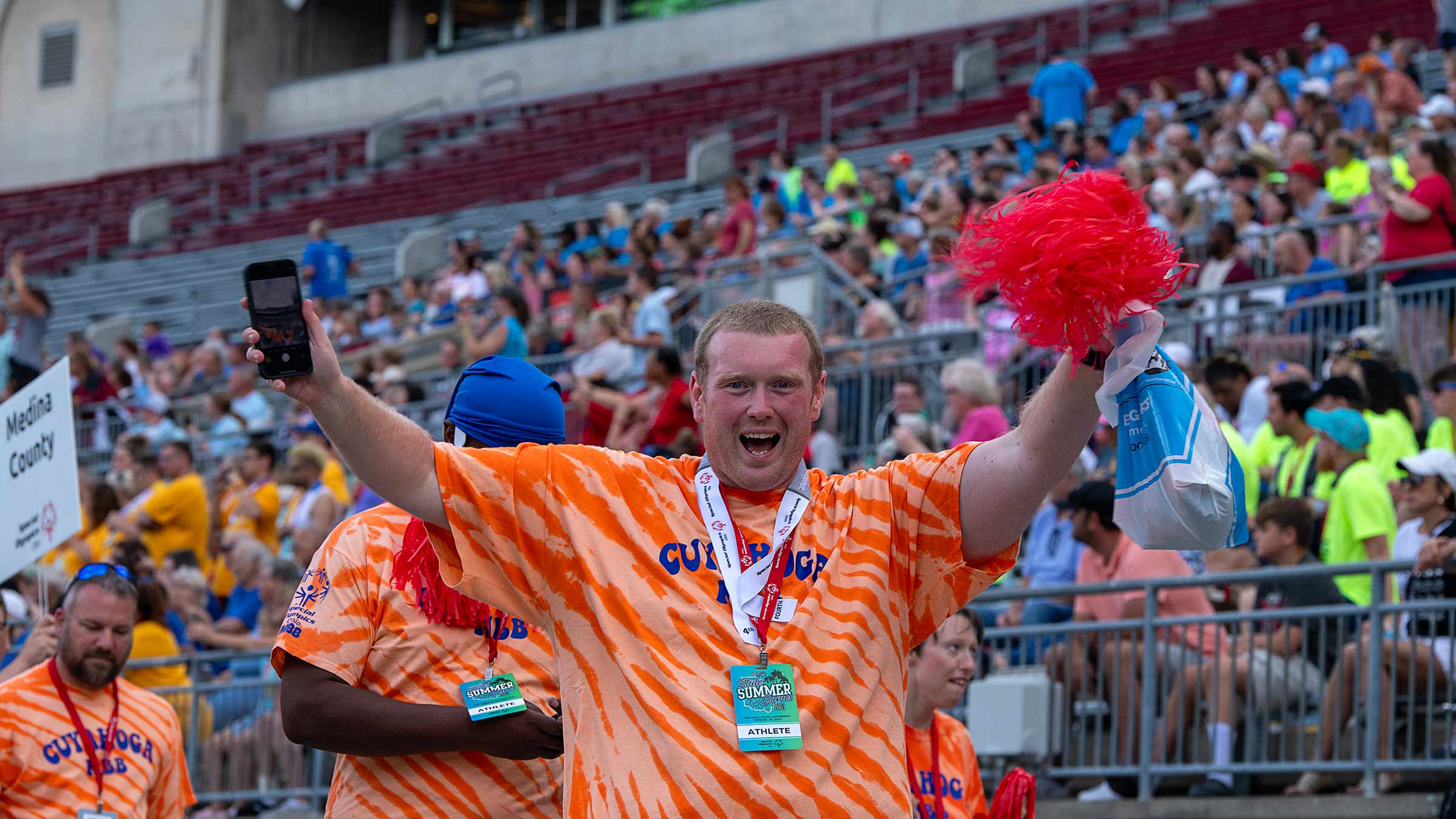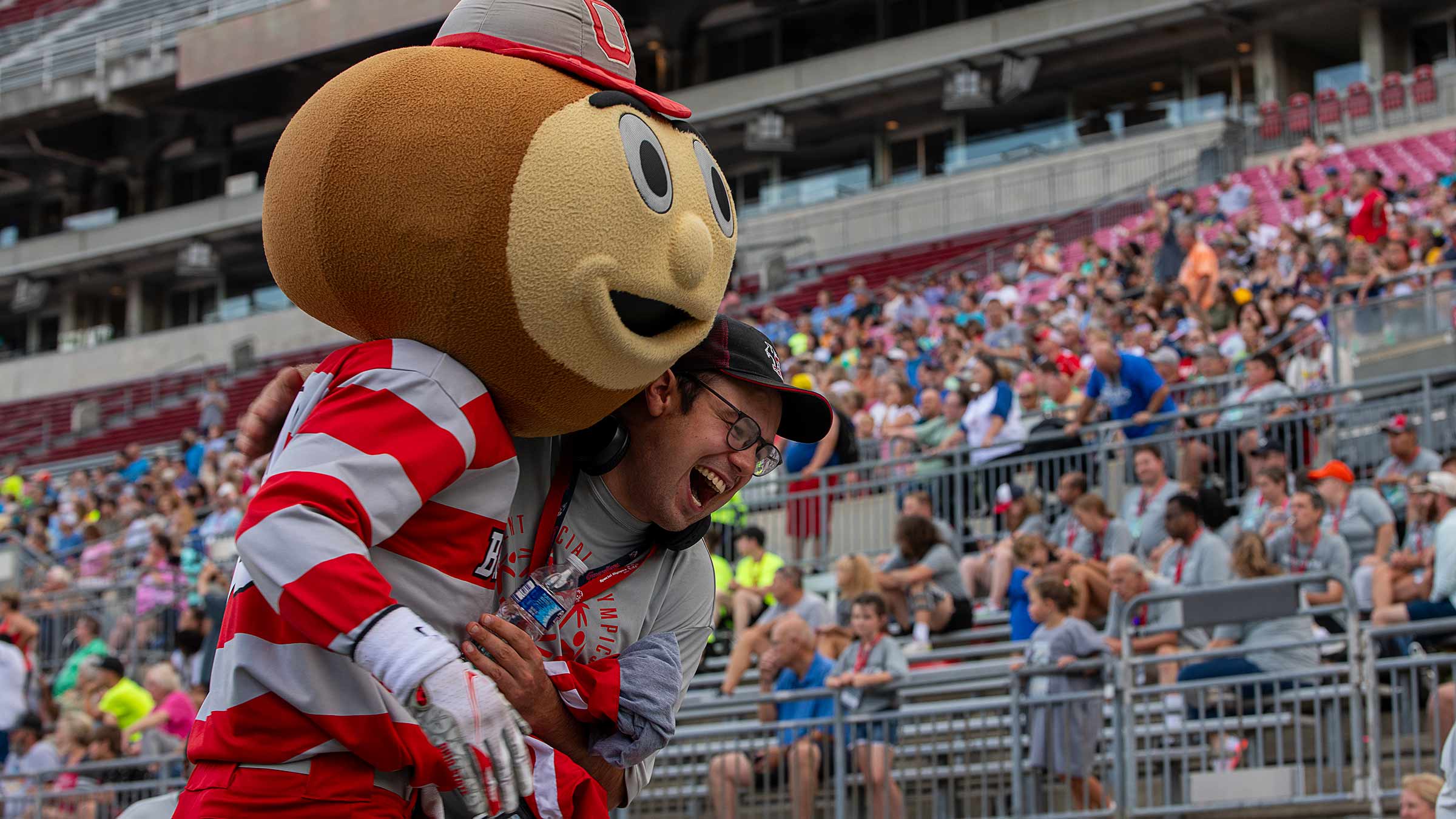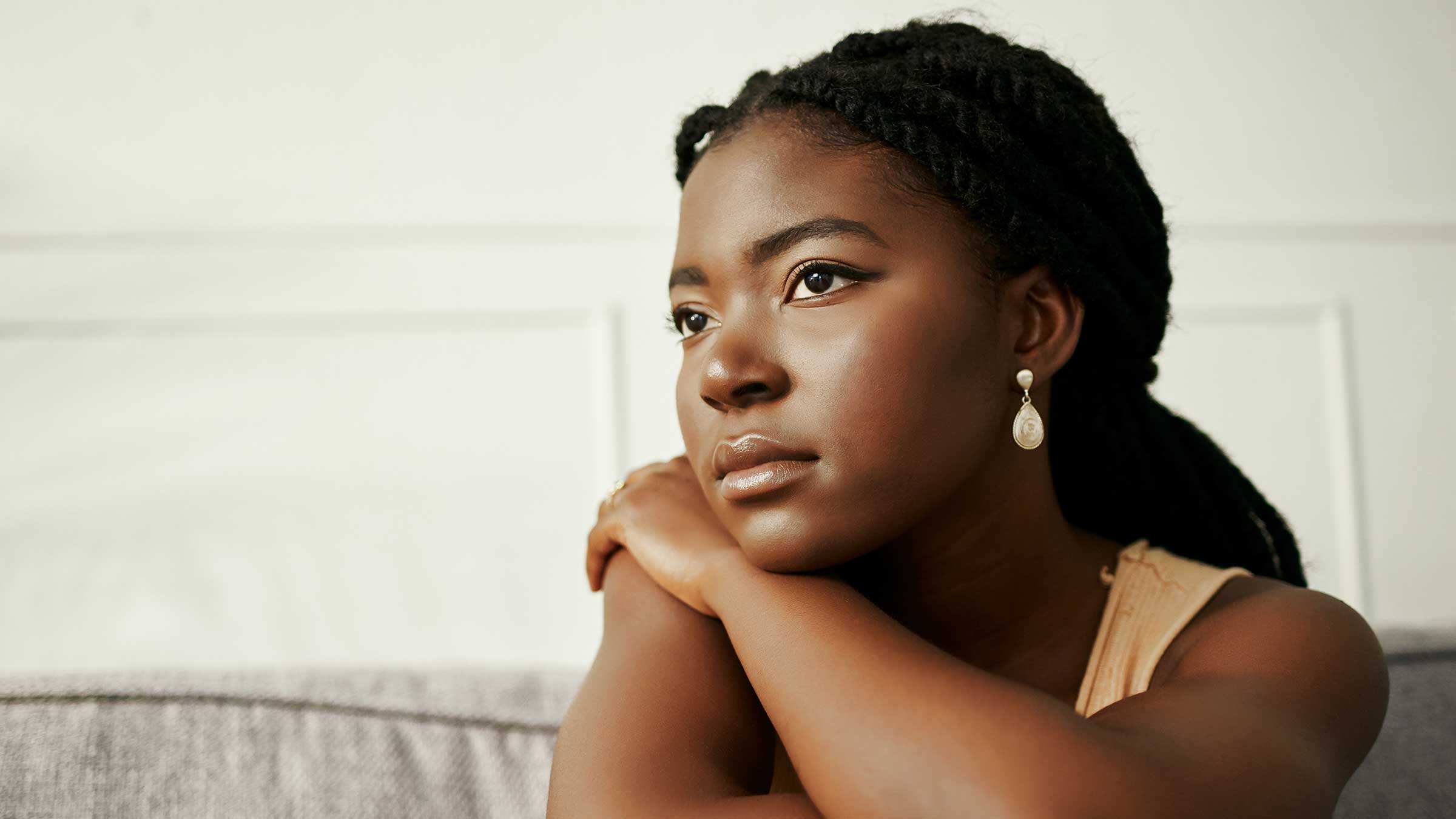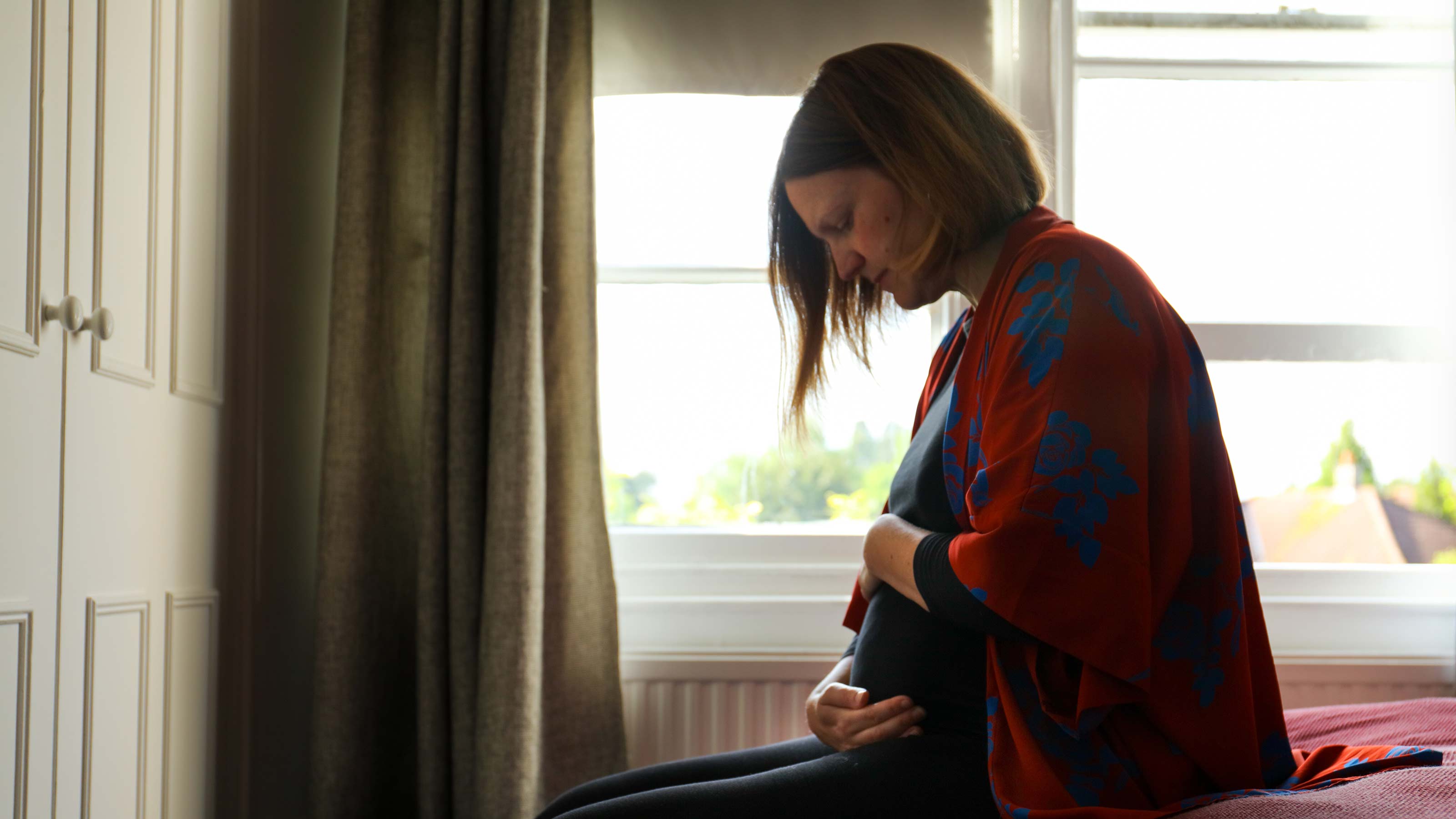Pulling together to provide needed health screenings for Special Olympics athletes
As a Special Olympics Ohio coach and former athlete, Brandon Hahn knows there’s much more to preparing for events than training.
Athletes face pressures that can trigger frustration and other mental health struggles.
So, Hahn is grateful for the Special Olympics Ohio Healthy Athletes program, which provides health screenings and resources in several areas, including mental well-being.
“Oh, my goodness, it is a lifesaver,” says Hahn, 32, of Carrollton, who coaches basketball. “In order for athletes to compete, they need to be at their best physical and mental health.”
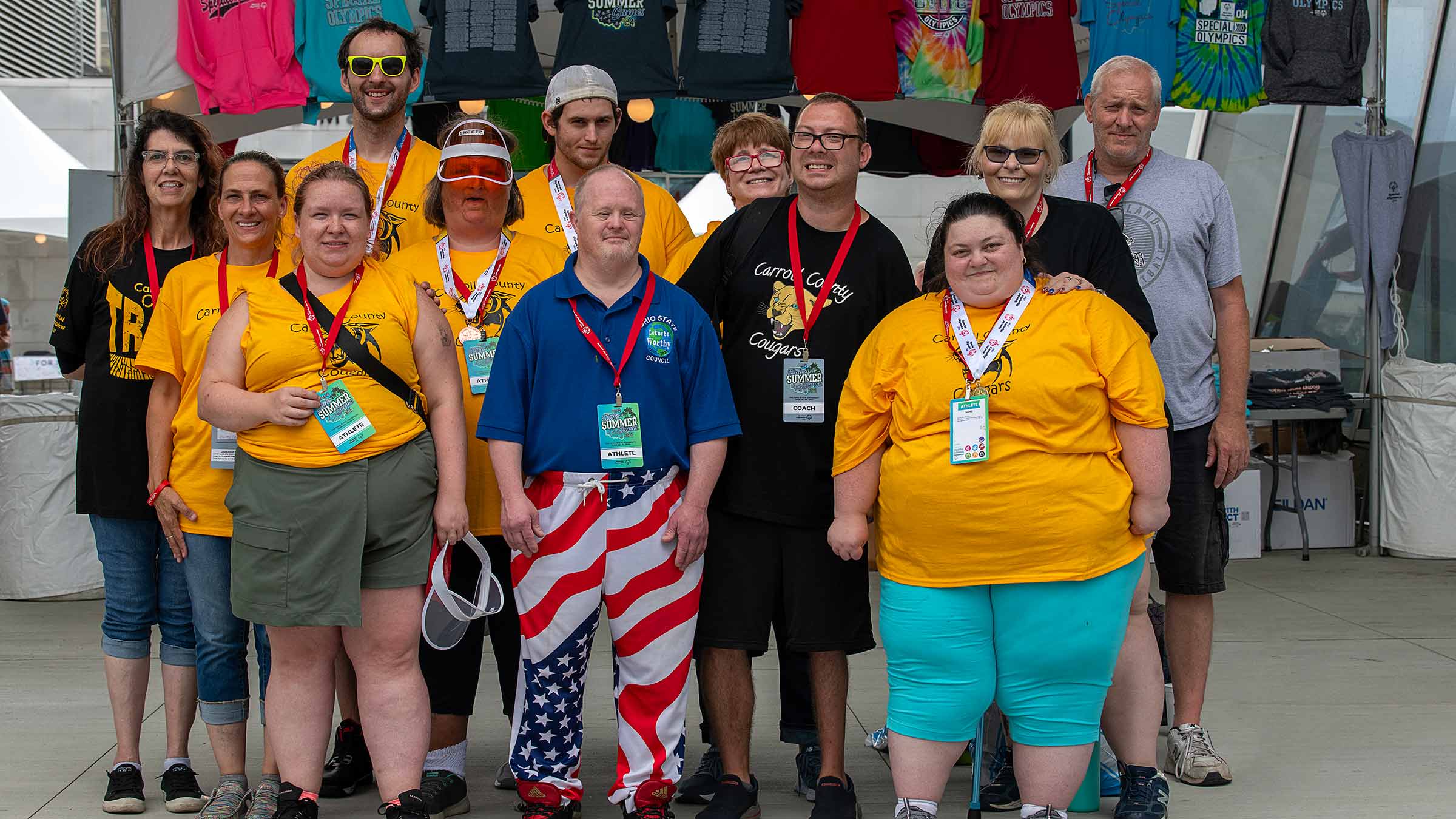
The Summer Games presented each June at The Ohio State University Wexner Medical Center offer screenings to the thousands of participating athletes, from children to adults in their 80s. Available are:
- Special Smiles: Dental screenings, oral health information and supplies
- Healthy Hearing: Hearing screenings
- Lions Clubs International Opening Eyes: Eye screenings, prescription eyeglasses, sunglasses and sports goggles
- Fit Feet: Foot screenings and proper shoe and sock gear
- Strong Minds: Learning activities and resources to develop emotional health and coping skills
- FUNFitness: Activities and education to improve athletic function and reduce injury
- Health Promotion: Prevention and nutrition education
Pitching in to provide needed health care screenings
During the 2025 games, health care teams completed about 2,300 screenings for athletes.
It’s a massive undertaking. Each summer, several programs from across The Ohio State University Wexner Medical Center and The Ohio State University’s health science colleges pitch in to help make the screenings happen. Among them have been more than 165 members of faculty, staff and students in dentistry, audiology, ophthalmology, podiatry, athletic training, physical therapy, psychology, nursing and more.
“We’re able to provide significant health screenings to an athletic population that may or may not have access at other times in a fun environment,” says Larry Nolan, DO, a sports and family medicine physician at the Ohio State Wexner Medical Center who serves as medical director for Special Olympics Ohio, succeeding former director, sports medicine physician Michael Jonesco, DO.
“Anytime we can get an athlete to engage more in their own health and keep them competing and doing the things that they like doing, it’s always a win,” Nolan says.

Healthy Athletes is a global program of Special Olympics, started due to large health disparities among people with intellectual disabilities, says Amy O’Neal, senior director of health strategies for Special Olympics Ohio.
The games offer a convenient one-stop access point for athletes from across Ohio who may struggle to find care in urban or rural areas or who may live away from family in residential homes.
O’Neal says that, according to most current data, screenings have shown that among participants:
- 8% have permanent hearing loss
- 17% have an eye disease
- 25% have untreated tooth decay
- 46% have a skin or nail condition
- 46% over age 20 are obese
Raising standards of care
“These screenings not only provide a service for our athletes, but they also provide a service for health care students and professionals, because they increase their knowledge of best practices and caring for individuals with intellectual disabilities,” O’Neal says.
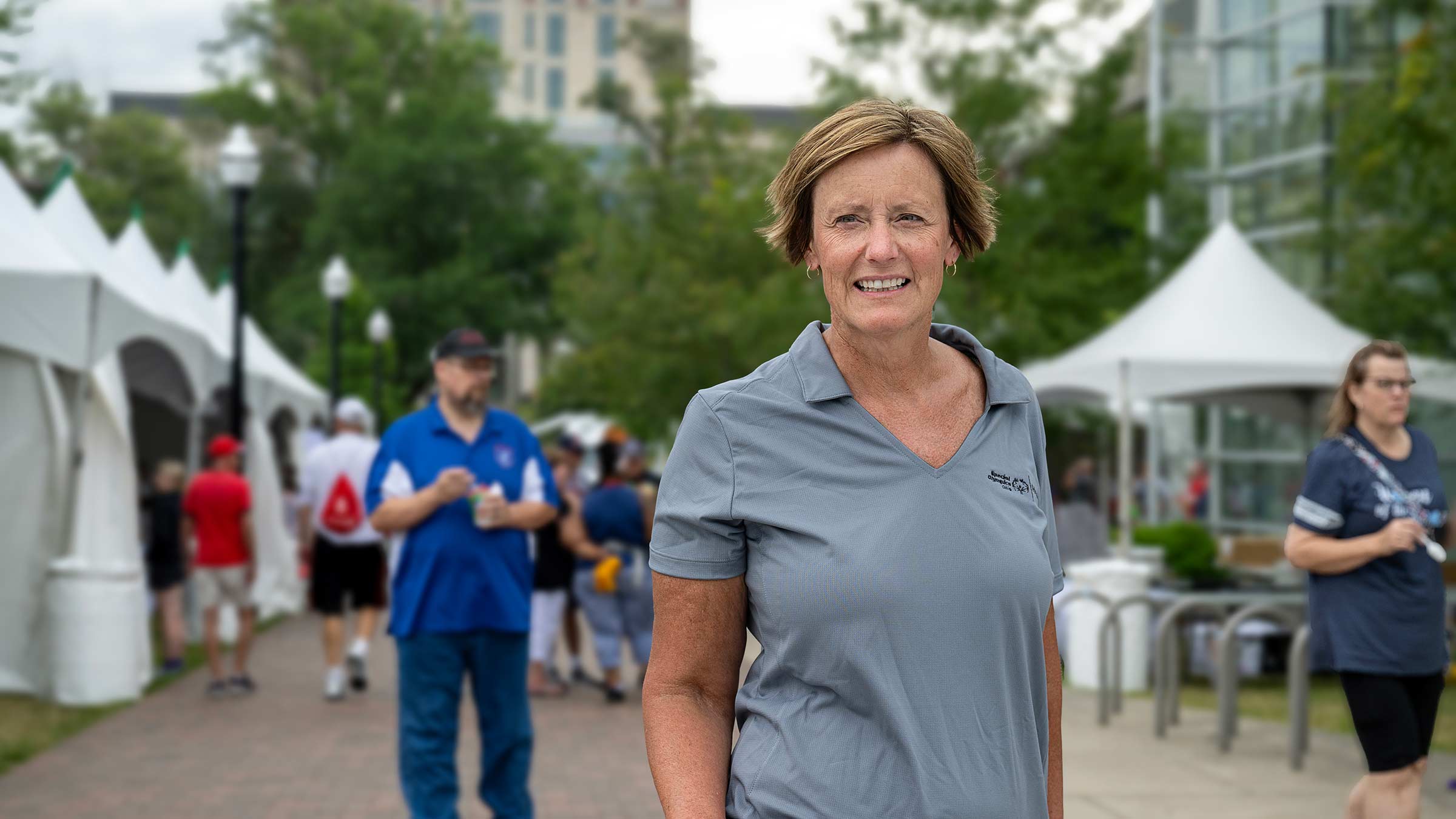
Kyanna Pastore, MS, an assistant director athletic trainer for The Ohio State University Department of Athletics, has helped out with screenings for Special Olympics for several years and says it’s rewarding to be part of a team that empowers the athletes to achieve their best.
“These individuals show the most appreciation for even the smallest gestures of care and support. I really enjoy their gratitude, and it’s genuine. It's just unmatched and unfiltered,” she says. “I get to build a connection with these athletes. It just fuels my passion and reinforces the value of inclusion and compassionate, holistic care.”
While performing screenings allows volunteers to make sure athletes are participating safely, it also helps ensure they’re healthy day in and day out and year to year, Pastore says. “It’s about being present, listening to what the athletes need, advocating for them and celebrating them,” she says.
Maggie Wolodkevich, senior clinical athletic trainer at the Ohio State Wexner Medical Center, says the service takes the financial burden out of health screenings for athletes and gives them an opportunity to communicate with health care teams who understand the challenges faced by people with intellectual disabilities.
She recalls a health screening identifying significant hearing loss in one athlete. While those around him had assumed he just wasn’t listening, Wolodkevich says he became a completely different person when he was able to get hearing aids.
“It’s eye opening to realize how many people don’t have the access to things that we take for granted,” Wolodkevich says.
She works on the medical team during Special Olympics Ohio events. “Special Olympic athletes are just like any other athletes. There’s no reason to treat them any different than our Ohio State athletes themselves.”
Inspired by athletes to do more
Dr. Nolan says he’s proud of the Ohio State team, but he’s also quick to point out that “it’s not just Ohio State.” Some other partners include Cleveland State University, University of Cincinnati and Cincinnati Children’s Hospital.
“This is a group of people who want to help these athletes, people who want to be a part of it. You get to be around a group of motivated athletes who are going to inspire you to want to do more,” says Dr. Nolan, a clinical associate professor of Family and Community Medicine in The Ohio State University College of Medicine.
Beth Chartier, RDH, MPH, a clinical director for the Special Olympics Ohio Special Smiles program in central Ohio, says the program screens for oral health issues, including oral cancer, instructs on proper brushing and flossing and provides fluoride varnish treatments. Volunteers also try to connect athletes with appropriate health care professionals as close to their homes as possible.
She calls it a phenomenal experience for dental and dental hygiene students, many of whom have never interacted with people with intellectual disabilities.
“Our students just love the experience and having that opportunity to raise their comfort level and have a better understanding of the unique oral health needs and difficulties that the population faces,” says Chartier, a clinical assistant professor in The Ohio State University College of Dentistry.
“It also helps raise the awareness of the immense difficulty that this population has in in accessing care,” she says. “There are very few dental providers who are comfortable or equipped in treating this population.”
‘It wouldn’t be Special Olympics without it’
Athlete Maxwell Damron, 27, of Columbus, has competed in bocce and basketball and has attended the health screenings. He says volunteers don’t only fill the role of doctor or nurse, but also help athletes make health decisions.
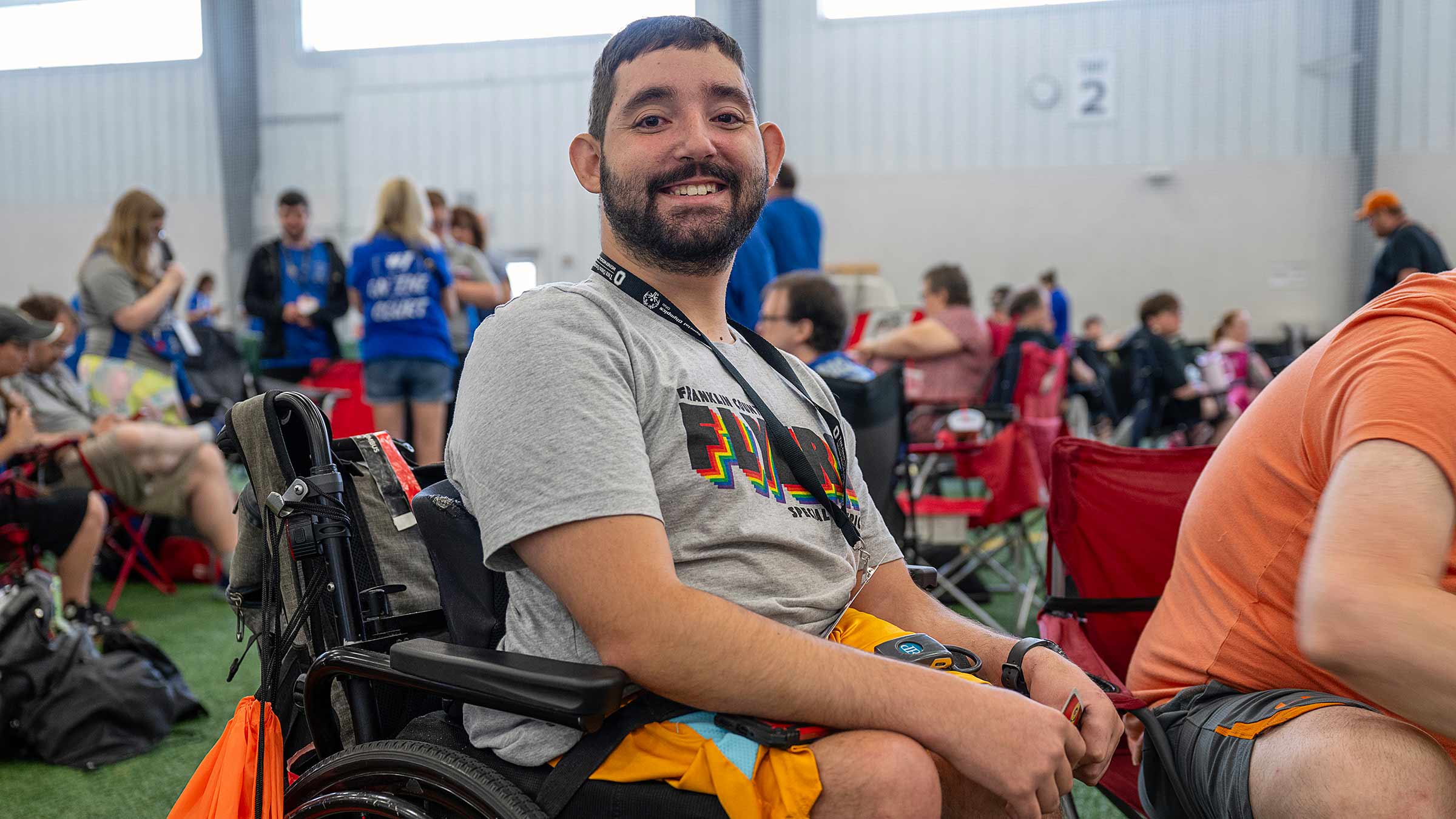
“It’s good to have the doctors and nurses there to educate the athletes on health, and keeping up to date with their appointments and not to avoid them if something is wrong with their health,” Damron says.
Both Damron and Hahn are also trained to serve as “Health Messengers,” health and wellness leaders, advocates and role models in their Special Olympics communities.
Hahn says Healthy Athletes is a critical component of the games that makes a difference and athletes gravitate toward it.
“I’ve seen change. They just love it,” he says. “It wouldn’t be Special Olympics without it.”
Andrea Headley, manager of athlete leadership for Special Olympics Ohio, says she often hears about the life-changing impact of Healthy Athletes and experiences the gratitude of athletes.
“It’s a very powerful program. The health component of Special Olympics is really downplayed, but it is globally the largest provider of free health screenings to individuals in the entire world,” says Headley.
It wouldn’t happen, she adds, if not for the volunteers.
“I can’t overstate just how important and vital they are,” she says.

When you give to The Ohio State University Wexner Medical Center, you’re helping improve lives
We’re committed to making advancements in research, education and patient care that will have an impact throughout Ohio and the world.
Ways to Give


